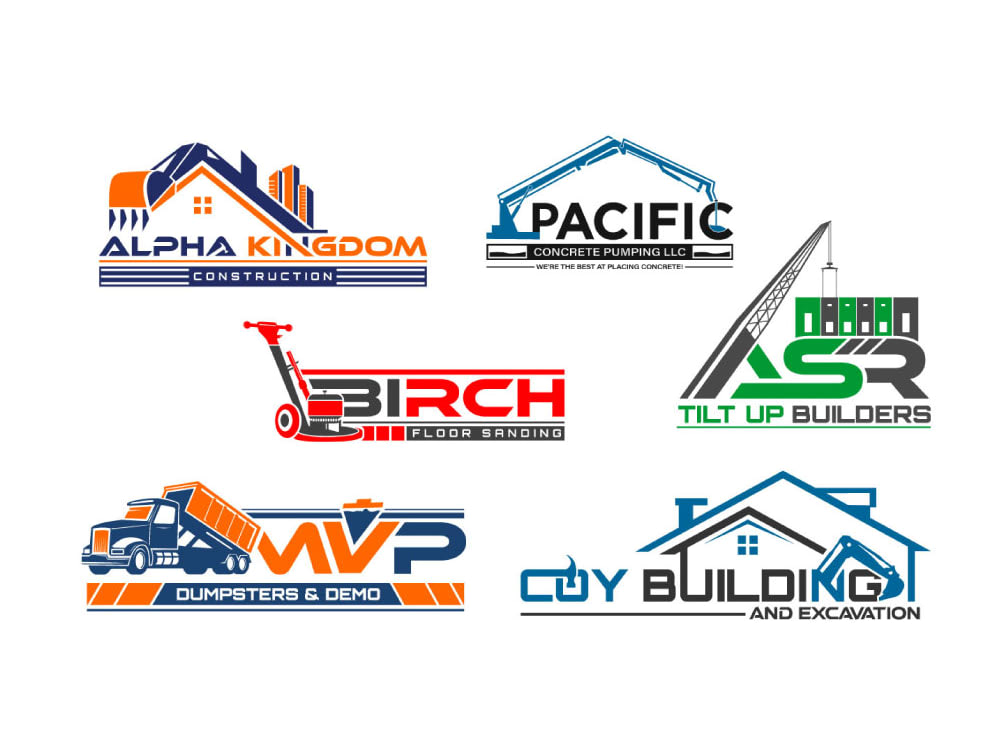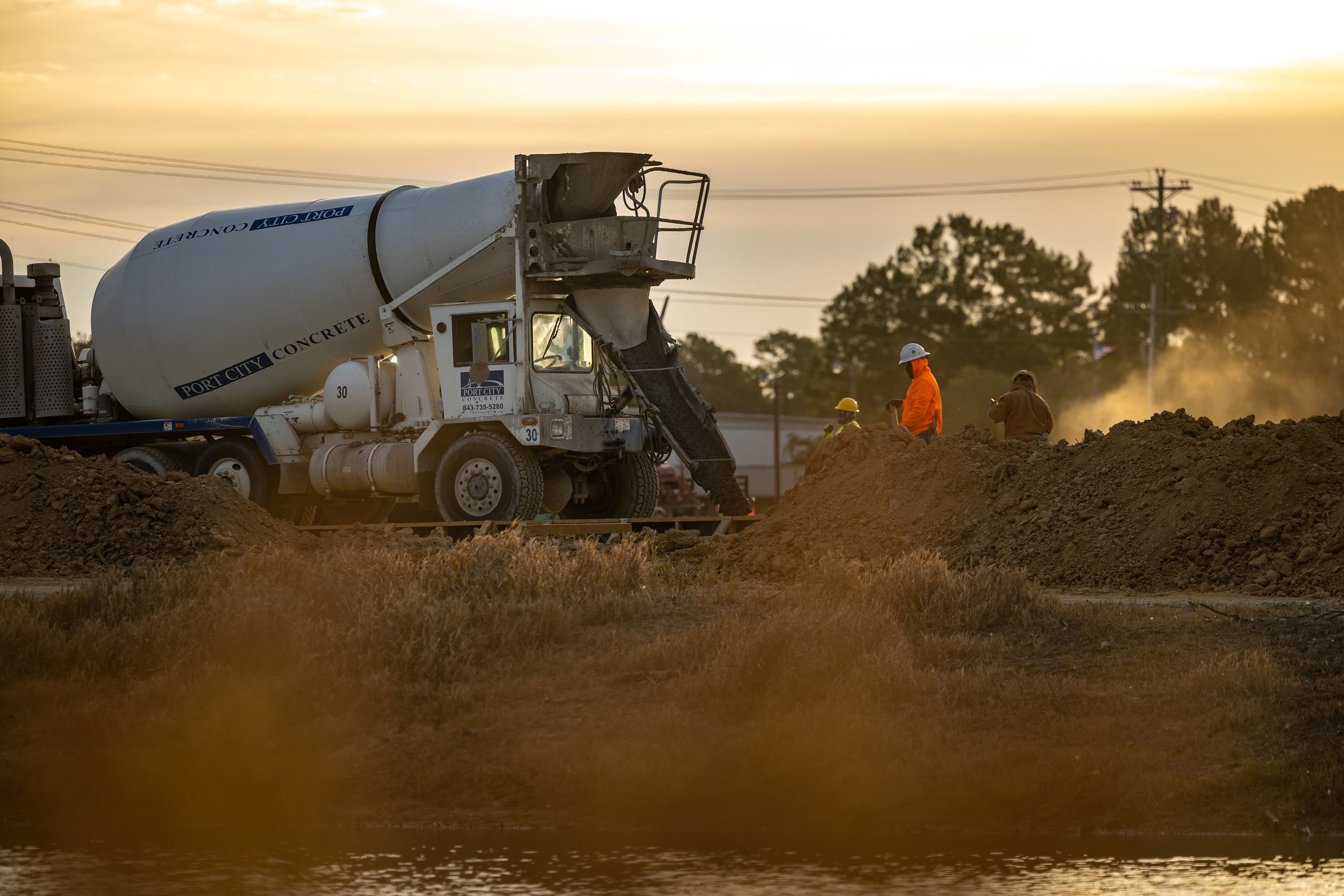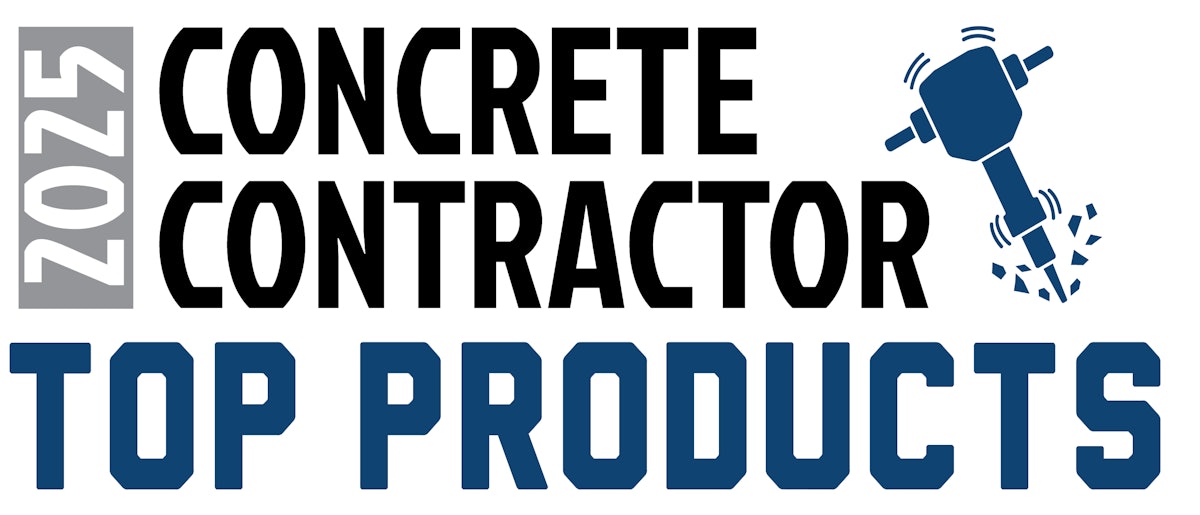The Benefits of Utilizing Concrete Solutions for Durable Structures
Concrete solutions provide a series of advantages for building durable frameworks. This material is renowned for its exceptional strength and long life. Its resistance to environmental aspects makes it a functional choice for different environments. In addition, concrete is typically more affordable over time. As architects and building contractors significantly discover innovative applications, the potential of concrete in style ends up being also a lot more interesting. The discussion of these advantages reveals engaging understandings right into modern construction methods.

Exceptional Toughness and Sturdiness
Concrete is renowned for its phenomenal stamina and toughness, making it a preferred material in building and construction. Concrete Contractors Pasadena TX. Its capacity to withstand heavy loads and withstand deformation under stress is unequaled, which is why it is typically used for foundational aspects, sustaining frameworks, and skyscrapers. The structure of concrete, which consists of concrete, water, and accumulations, allows it to attain high compressive toughness, commonly surpassing that of typical structure materials like wood or steel. This toughness ensures structural honesty and longevity, thus lowering maintenance prices gradually. In addition, concrete's longevity appears in its capability to endure different anxieties without catching tear and put on, making it suitable for varied applications, from bridges to property homes. Overall, the robust features of concrete contribute to its online reputation as a trusted choice for creating enduring structures that stand the test of time
Resistance to Environmental Elements
Several building materials are prone to ecological degeneration, concrete exhibits amazing resistance to different aspects such as dampness, temperature variations, and chemical exposure. Its fundamental properties make it especially suitable for varied applications, from domestic structures to huge facilities tasks. Concrete's reduced leaks in the structure restrictions water absorption, decreasing the risk of damage from freeze-thaw cycles and protecting against mold and mildew development. In addition, it maintains architectural integrity when subjected to extreme temperature levels, making it excellent for regions with rough environments. Concrete additionally stands resilient against chemical strikes, including acids and sulfates, which can degrade other materials. This resistance is even more enhanced by the use specialized ingredients and therapies throughout the blending procedure. On the whole, concrete's longevity when faced with ecological obstacles warranties durability and integrity, making it a preferred choice for builders and architects aiming to construct sustaining frameworks.
Cost-Effectiveness Over Time
Cost-effectiveness in concrete solutions materializes as a lasting financial investment that significantly benefits structures. This method not just lessens maintenance expenses but also enhances energy effectiveness, causing substantial financial savings over time. Understanding these factors is vital for evaluating the overall value of durable concrete building and constructions.
Long-Term Financial Investment Perks
Buying resilient structures yields considerable long-term benefits that expand past preliminary expenditures. Concrete services, understood for their toughness, add to a framework's durability, ultimately decreasing the total cost of possession. By using high-grade materials and professional workmanship, owners can expect fewer fixings and substitutes over time. This integrity equates into a stable property value, making concrete building and constructions a smart economic option in the realty market. Additionally, frameworks constructed with concrete are typically much more energy-efficient, more enhancing their cost-effectiveness. As a result, the first financial investment in concrete solutions can bring about substantial financial savings and better returns over the years, attesting the value of picking long lasting options for durable building and construction projects.
Lowered Upkeep Costs
The longevity of concrete structures not only boosts possession worth but additionally considerably minimizes upkeep expenditures in time. Unlike products that degrade swiftly, concrete shows impressive resilience against different environmental factors, such as wetness, temperature changes, and parasites. This fundamental sturdiness converts to fewer substitutes and repair work, consequently lessening long-lasting expenses. Additionally, the low absorption rate of concrete limits concerns connected to mold and mildew and mildew, which can require pricey removal initiatives. Routine upkeep is often decreased to basic cleansing as opposed to considerable repairs, better adding to cost-effectiveness. Consequently, property owners purchasing concrete solutions can anticipate a substantial decline in upkeep budgets, making concrete an economically sound choice for durable frameworks.
Power Efficiency Savings
As power efficiency ends up being increasingly important in construction, concrete frameworks attract attention for their capability to enhance long-term savings on utility expenses. The thermal mass of concrete enables structures to maintain steady interior temperatures, reducing the requirement for home heating and cooling down systems. This property reduces energy usage and translates to reduce energy prices gradually. Additionally, concrete's toughness adds to less replacements and repair services, likewise enhancing cost-effectiveness. Moreover, modern-day concrete innovations, such as insulated concrete types and energy-efficient blends, improve insulation and energy efficiency, bring about considerable savings. Spending in concrete solutions not just profits the atmosphere through reduced power use however likewise uses significant financial advantages for property owners in the long run.
Adaptability in Layout and Application
Concrete's convenience in design and application enables a wide variety of customizable aesthetic options, making it ideal for various architectural styles (Concrete Contractors Pasadena TX). Its ability to adjust to diverse structural applications boosts its capability in both industrial and household jobs. This versatility positions concrete as a preferred material in modern building and construction
Personalized Aesthetic Options

Diverse Architectural Applications
Checking out the varied architectural applications of concrete exposes its exceptional convenience in style and functionality. Concrete is made use of in numerous types, including foundations, wall surfaces, pavements, and ornamental elements, permitting it to adjust to countless architectural styles. Its intrinsic stamina and longevity make it suitable for high-rise structures, bridges, and framework projects. Additionally, concrete can be formed into intricate shapes, accommodating innovative layouts while keeping structural honesty. This adaptability also reaches residential applications, such as outdoor patios, driveways, and retaining wall surfaces. In addition, improvements in technology have actually brought about the advancement of specialized concrete combinations, boosting performance in details settings. This wide-ranging applicability emphasizes concrete's crucial duty in modern-day construction, satisfying both visual and functional demands successfully.
Reduced Maintenance Demands
Lots of building owners appreciate the low maintenance requirements related to concrete frameworks. Unlike products such as timber or metal, concrete is normally immune to insects, rot, and corrosion. This longevity significantly minimizes the frequency and cost of repair work in time. Fractures and surface area wear can be quickly attended to with minimal effort, usually needing only routine securing or resurfacing.Additionally, concrete structures do not call for normal painting or discoloration, further adding to their reduced upkeep. This particular is especially advantageous for industrial residential properties, where maintenance costs can rapidly accumulate.Furthermore, concrete is much less at risk to weather-related damages, making certain that frameworks remain intact regardless of ecological problems. As a result, homeowner can appreciate the lasting advantages of concrete, consisting of lowered labor and upkeep expenses, allowing them to assign sources to various other vital areas of their residential or commercial properties. Inevitably, the low maintenance requirements of concrete make it an attractive selection for constructing resilient structures.
Eco-Friendly Building Product
As the demand for sustainable building and construction techniques grows, concrete arises as an environment-friendly building material that offers various environmental advantages. Its manufacturing can incorporate recycled products, such as industrial by-products and waste aggregates, which lowers the requirement for virgin resources and minimizes landfill waste. Additionally, concrete has the ability to manage temperature, thus boosting power efficiency in structures. This thermal mass effect can result in lower power consumption for cooling and heating, further minimizing a structure's carbon footprint.Moreover, concrete is durable and long lasting, which indicates structures require fewer repairs and improvements gradually, leading to less source usage in general. Breakthroughs in technology have actually also caused the growth of environment-friendly and low-carbon concrete formulations that decrease greenhouse gas discharges throughout production. By prioritizing concrete in construction jobs, contractors can add to a more lasting future while making certain the durability and durability of structures.
Boosted Residential Property Worth and Charm
A well-constructed concrete framework significantly enhances residential property value and allure, commonly making it more appealing to potential buyers or occupants. Concrete's longevity and low maintenance demands add greatly to lasting investment returns. Features featuring high-quality concrete building this content and constructions tend to draw in greater offers due to their perceived security and longevity. Furthermore, visually pleasing concrete layouts, such as stamped or tinted coatings, can elevate aesthetic allure, producing a favorable first impression.Moreover, concrete frameworks commonly fulfill modern structure standards, which can be a selling point for environmentally conscious customers. The energy performance connected with well-insulated concrete also interest buyers aiming to decrease utility expenses. Generally, investing in additional info concrete solutions not just reinforces the structural integrity of a property but likewise improves its bankability, leading to boosted property value and an one-upmanship in the property market.
Often Asked Questions
The length of time Does It Require To Treat Concrete Appropriately?
The treating procedure of concrete usually takes regarding 28 days to accomplish perfect toughness, although first setup takes place within hours. Elements like temperature and humidity can affect the healing duration and performance substantially.
What Sorts Of Concrete Services Are Readily Available?
Numerous types of concrete solutions exist, including putting, creating, ending up, resurfacing, and ornamental concrete. Concrete Companies Near Me. Business might additionally supply repair service, repair, and installation of concrete frameworks, satisfying both property and commercial needs
Can Concrete Be Recycled After Its Use?
Concrete can certainly be reused after its usage. When processed, it can be repurposed for brand-new construction jobs, reducing waste and advertising sustainability within the building industry while preserving structural honesty in brand-new applications.
What Are the very best Practices for Pouring Concrete?
When putting concrete, ideal methods include appropriate website preparation, ensuring excellent temperature problems, using proper mixing ratios, keeping constant putting methods, and enabling ample curing time to enhance stamina and resilience of the completed framework.
Are There Any Alternatives to Traditional Concrete?
